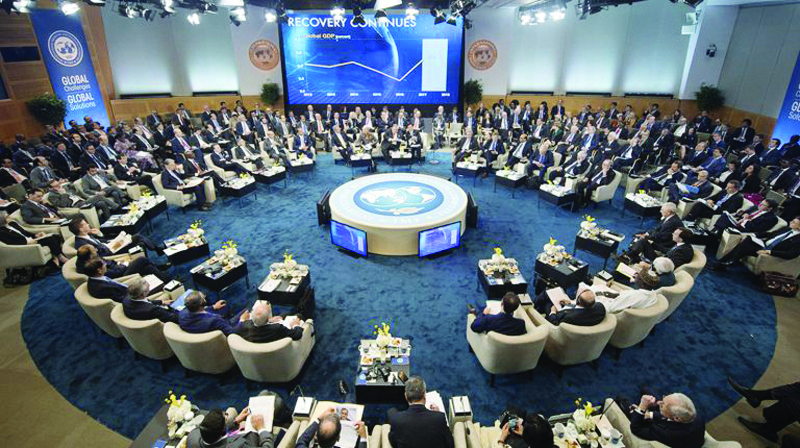DUBAI: The Middle East and North Africa is on track for a recovery, but rising social unrest is threatening the "fragile" progress of low-income economies, the International Monetary Fund said yesterday. The MENA region, which includes Arab countries and Iran, saw real GDP growth shrink by 3.2 percent in 2020 due to weak oil prices and sweeping lockdowns to halt the spread of the coronavirus.
But with rapid vaccination campaigns, especially in oil-rich Gulf nations, the IMF predicted GDP growth would rise to 4.1 percent this year, up 0.1 of a percentage point from its last projection in April. "The region is going through recovery in 2021. Since the beginning of the year, we see progress in the economic performance," said Jihad Azour, director for the Middle East and Central Asia at the IMF. But "this recovery is not the same in all countries. It is uncertain and uneven because of the divergence in vaccination... and geopolitical developments", he told AFP.
The IMF said in a report that while the prospects for oil-exporting economies improved with higher oil prices, low-income and crisis-hit countries were witnessing "fragile" recoveries. It warned of "a rise in social unrest" in 2021 that "could pick up further due to repeated infection waves, dire economic conditions, high unemployment and food prices".
Algeria, Iraq, Lebanon, Sudan other countries have been witnessing protests in recent months by thousands of angry citizens demanding better jobs and services. Unemployment increased in MENA last year by 1.4 percent to reach 11.6 percent, a rise exceeding that seen during the global financial crisis and the 2014-15 oil price shock, the IMF said.
Increasing inequities
The IMF warned of the longer-term risk of an uneven recovery, which could lead to a "permanent widening of existing wealth, income, and social gaps and, ultimately, weaker growth and less inclusive societies". About seven million more people in the region are estimated to have entered extreme poverty during 2020-21 compared with pre-crisis projections, according to the IMF.
Meanwhile, inflation in the region is projected to increase to 12.9 percent in 2021 from 10.4 last year, with higher food and energy prices in some countries, before subsiding to 8.8 percent in 2022. "Inequities are increasing. The low-skilled, the young, women, and migrant workers have been affected the most by the pandemic, as have smaller firms, particularly those in contact-sensitive sectors," said the report. According to the international lender, the corporate sector has recovered to pre-pandemic levels, but smaller firms and those in "contact-sensitive sectors" are lagging behind.
"Fifteen to 25 percent of firms may need to be restructured or liquidated," it added. In Lebanon, the continuing drop in the value of the currency has dashed hopes that the government formed last month can stem an economic crisis that the World Bank brands as one of the worst since the mid-19th century. Nearly 80 percent of Lebanon's population lives below the poverty line. "The Fund has already started technical discussions with the authorities... to develop what would be in fact that the framework within which the fund can help Lebanon," said Azour, a former Lebanese finance minister. - AFP


